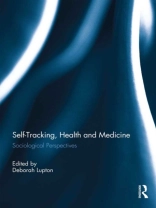Self-tracking practices are part of many health and medical domains. The introduction of digital technologies such as smartphones, tablet computers, apps, social media platforms, dedicated patient support sites and wireless devices for medical monitoring has contributed to the expansion of opportunities for people to engage in self-tracking of their bodies and health and illness states. The contributors to this book cover a range of self-tracking techniques, contexts and geographical locations: fitness tracking using the wearable Fitbit device in the UK; English adolescent girls’ use of health and fitness apps; stress and recovery monitoring software and devices in a group of healthy Finns; self-monitoring by young Australian illicit drug users; an Italian diabetes self-care program using an app and web-based software; and ‘show-and-tell’ videos uploaded to the Quantified Self website about people’s experiences of self-tracking. Major themes running across the collection include the emphasis on self-responsibility and self-management on which self-tracking rationales and devices tend to rely; the biopedagogical function of self-tracking (teaching people about how to be both healthy and productive biocitizens); and the reproduction of social norms and moral meanings concerning health states and embodiment (good health can be achieved through self-tracking, while illness can be avoided or better managed). This book was originally published as a special issue of the Health Sociology Review.
Deborah Lupton
Self-Tracking, Health and Medicine [PDF ebook]
Sociological Perspectives
Self-Tracking, Health and Medicine [PDF ebook]
Sociological Perspectives
Achetez cet ebook et obtenez-en 1 de plus GRATUITEMENT !
Langue Anglais ● Format PDF ● Pages 128 ● ISBN 9781351609609 ● Éditeur Deborah Lupton ● Maison d’édition Taylor and Francis ● Publié 2017 ● Téléchargeable 3 fois ● Devise EUR ● ID 7122395 ● Protection contre la copie Adobe DRM
Nécessite un lecteur de livre électronique compatible DRM











![Couverture du Rene Maunier: The Sociology of Colonies [Part 2] Couverture du Rene Maunier: The Sociology of Colonies [Part 2]](https://static.worldofdigitals.com/thumb_webp/572/9781136245572.webp)
